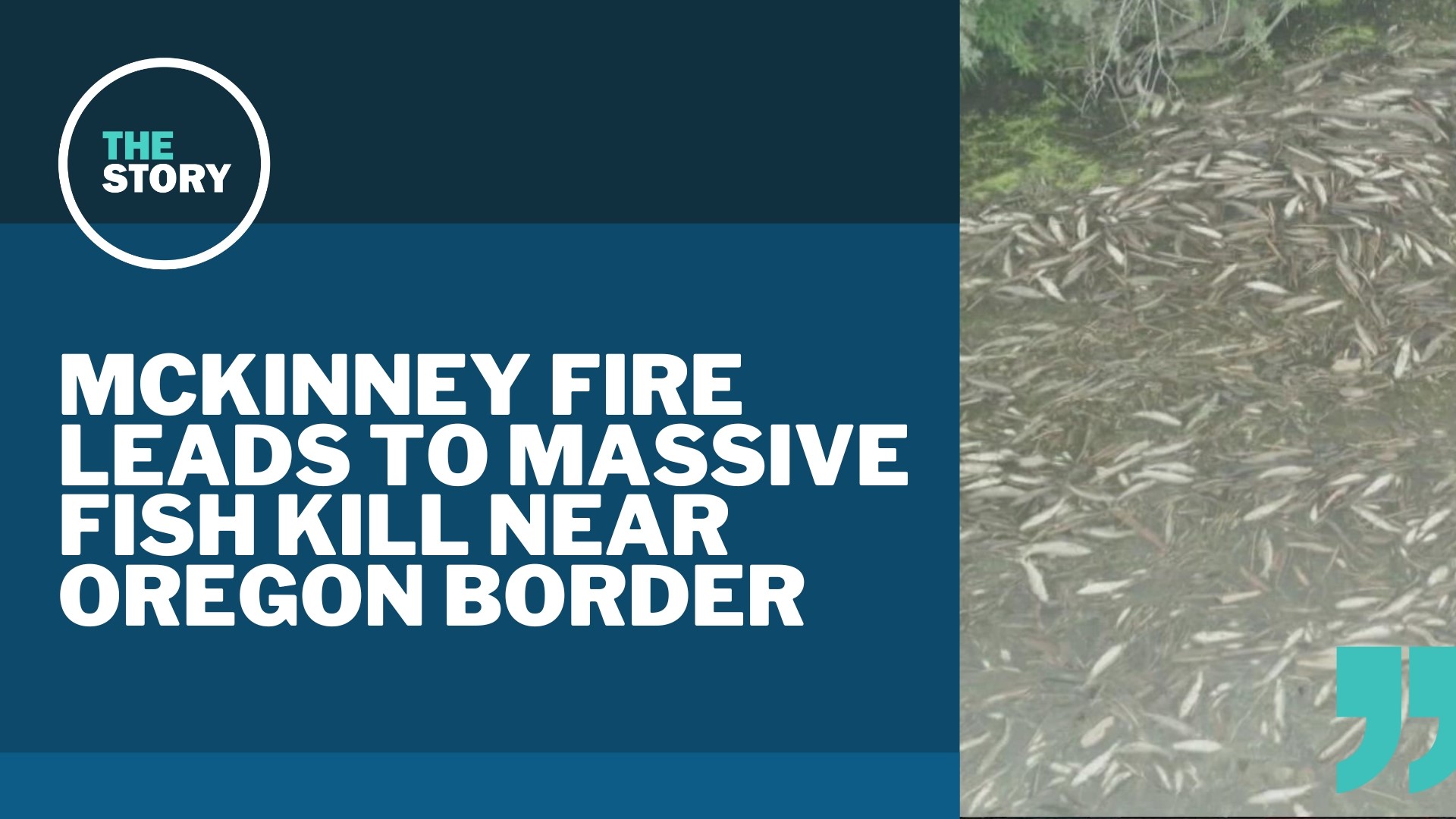HAPPY CAMP, Calif. — When we talk about wildfires, we tend to focus on things like the number of acres burned and homes destroyed. But sometimes there are impacts that are less visible, like the effect on wildlife — and that includes fish.
About a week ago, the McKinney Fire, which has burned over 60,000 acres near Oregon's southern border, tore through a forested area near the Klamath River in Northern California, burning away a lot of vegetation that was holding soil and rocks in place. And then a powerful thunderstorm rolled in and created a flash flood, sending lots of mud into the river.
All of that mud and debris caused the Klamath River to swell up, choking off oxygen for the fish.
Craig Tucker is the natural resources policy advocate for the Karuk Tribe, which first discovered the fish kill. He said people living near Happy Camp, Calif. started seeing dead fish floating into town.
"You really couldn't go upstream to investigate things thoroughly because of active fire activity. The highway's closed 50 miles up the road, but our fisheries program at the crew tribe launched into action, went as far up as they could — about 20 miles upstream from Happy Camp — and were really devastated by what they saw Friday and Saturday. Tens of thousands of dead fish were floating in the river, filling up every eddy," said Tucker.
He explained that the McKinney Fire spread along a couple creeks in the area prior to the flash flooding.
"So this was a kind of rare and unseasonable heavy rain event in a small area, and it just washed tons and tons of sediment and ash and debris into the river. It doubled the flow of the Klamath River in this area."
Typically, rivers like the Klamath are clear as they run through remote parts of Northern California. But after the flooding, the mud took water oxygen levels down to zero for several hours on the night of Aug. 3. It suffocated tens of thousands of fish.
The fish that were killed included numerous suckers, which eat algae and benefit water quality, as well as juvenile salmon.
"We will really see the consequences of this event in a few years when we're looking for those adult fish to return," Tucker said of the salmon.

